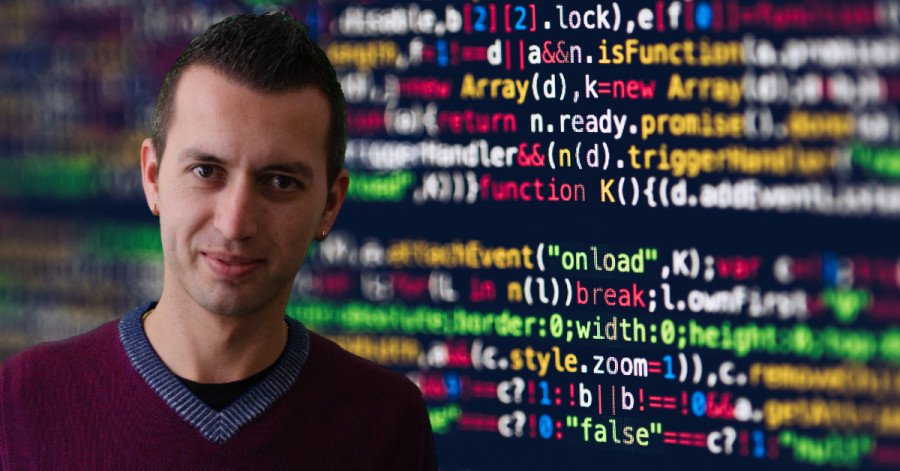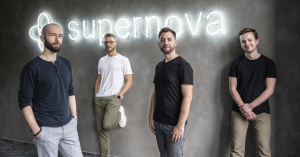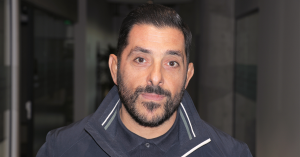In the intricate dance of technical interviews, the nuances often make all the difference. How crucial is it for a candidate to be well-versed with the company they’re interviewing for? As remote work reshapes the professional landscape, how do companies assess a candidate’s adaptability to distributed teams and their proficiency with communication tools? And as AI continues to redefine industries, will the traditional technical interview stand the test of time, or will real-case scenarios and conversational-style interviews take the lead? These are just a few of the pressing questions that hover over the tech industry’s hiring processes.
The Recursive sat down with Stanko Metodiev, the CTO of DevriX, to delve into these matters. With over a decade of experience in WordPress (the popular open source Content Management System), Metodiev has witnessed the transformation of DevriX from a duo to a powerhouse of 50+ industry experts. Beyond his technical prowess, he’s a WordPress Core Contributor, a theme and plugin author, and an active community member, organizing WordCamps and various platform-centric events. As we journey through his insights, we uncover the nuances of technical interviews drawing from the wisdom he’s garnered from his expansive career.
This article is the second part of our “Mastering the Tech Interview” series. Stay tuned for the next ones and check out Part 1 where we learn what’s the “Wow Effect” CTOs are looking for!
The Recursive: What are some common technical interview mistakes you’ve observed, and how can candidates avoid them?
Stanko Metodiev: One of the common mistakes I’ve often noticed is candidates not being well-informed about the company they’re interviewing with. It might sound like a cliché, but it’s crucial. I’ve been in interviews where the candidate didn’t have a clear understanding of the current requirements of the position they were applying for, which can make the interview feel a bit chaotic.
Another aspect that I find important is when candidates don’t inquire about the company’s current technology stack and the technologies used in their projects. Similarly, it’s essential to ask about the team structure, the day-to-day tools, and such. If I were applying for a new job, I would want to know what I’ll be working on and the tools I’ll be using during my daily tasks.
Could you share an example of a particularly impressive technical interview performance? What set that candidate apart?
Building on the previous question, I always appreciate it when candidates engage in a meaningful discussion about the workload, the tools we use, deployment processes, version control, and similar topics. It’s impressive when a candidate asks about their day-to-day, weekly, and monthly responsibilities, as well as the tools they’d be working with and how those align with our current projects.
What sets a candidate apart in my eyes is when they not only ask questions but also share their experiences and insights. It’s valuable when they suggest different approaches, shortcuts, and offer useful tips and tricks. This kind of exchange of ideas with a potential candidate can be really enriching.
What are some effective ways candidates can demonstrate their problem-solving abilities and technical skills during a technical interview?
The effectiveness of demonstrating problem-solving abilities and technical skills during a technical interview can vary depending on the position and the interview format. In the case of an online interview, screen sharing to walk through specific solutions can be a useful method. Personally, I appreciate it when applicants have open-source projects in their Git repositories; it provides a clear understanding of their abilities.
During the interview itself, having a set of specific questions and example scenarios is beneficial. This allows you to gauge the candidate’s thought process and problem-solving skills. At times, we pose challenging questions or present suboptimal solutions to problems to assess whether the candidate questions the approach and can offer a better solution.
Do you prefer candidates who are domain experts or those with a broader range of skills? How can candidates strike the right balance between specialization and versatility?
My preference between candidates who are domain experts and those with a broader skill set depends on the specific requirements of the open position. There are times when we are seeking candidates with a particular set of skills tailored to a specific project, such as expertise in a particular tech stack or programming language.
Conversely, in other situations, we may prioritize the candidate’s adaptability and ability to transition seamlessly into a dynamic workflow that aligns with the company’s current needs and ongoing projects. Striking the right balance between specialization and versatility depends on the context of the role and the company’s requirements.
In an era of remote work and distributed teams, how do you adapt your technical interviews to assess a candidate’s remote collaboration skills and self-discipline?
Even before remote work became widely popular, we had experience with distributed teams. In the past, we focused on assessing how candidates would react to various tasks or challenges in a remote setting. We presented them with example scenarios and asked probing questions to gauge their response and problem-solving abilities. These scenarios often involved technical aspects or client requests.
While it’s not a foolproof method, knowing what to look for in these scenarios can provide valuable insights into whether a candidate is well-suited for the current job, particularly in terms of remote collaboration skills and self-discipline.
Considering the collaborative nature of tech projects, how do you assess a candidate’s ability to work effectively in a team and communicate complex technical concepts with clarity?
Evaluating a candidate’s ability to work effectively in a team and communicate complex technical concepts with clarity is context-dependent and based on the candidate’s experience. As mentioned earlier, we present different examples from our work, adapting them to the specific scenario.
Sometimes, we pose fairly technical questions to assess how the candidate approaches new tasks, especially if they lack experience with certain technologies or if we’re dealing with an intricate problem.
Additionally, we review the candidate’s past experience with communication tools like Slack or Discord, their familiarity with Git, and their use of project management systems. This helps us gauge how they might handle communication within a team.
Observing how frequently a candidate seeks help or seeks a second opinion on a task can provide valuable insights into whether they are inclined toward collaborative teamwork or prefer working independently. Both approaches have their merits and drawbacks, and the suitability depends on the specific job profile we’re considering.
In your opinion, what sets apart a good technical interview from a great one?
In my view, what distinguishes a good technical interview from a great one is a more conversational approach. While we need to assess a candidate’s skill level, this can be accomplished through various real-world scenarios and cases.
To enhance the interview experience, we tailor our questions to align with the seniority level of the position. We combine theoretical questions with practical ones to gain a comprehensive understanding of the candidate’s capabilities.
While code review sessions can be enlightening, they can also be stressful for some candidates, and we’ve observed that this stress may not accurately reflect how they perform in real job situations. Therefore, we aim to conduct diverse interviews that suit the individual we are speaking with.
For candidates who have open-source projects or personal endeavors, delving into these can be quite insightful. It provides us with more information about the candidate, their passion for their work, their technical approach, and the technologies they use. You can understand more about the person, if they are working on something they are passionate about.
As a leader in tech, how do you see technical interviews evolving in the next five years to keep up with the changing industry landscape?
As AI continues to play an increasingly prominent role in various industries, I anticipate that technical interviews will evolve toward more unconventional formats. As I’ve mentioned previously, I favor real-case scenarios and conversational-style interviews. The reason for this preference is that in today’s tech landscape, it has become easier to access predefined answers to typical technical questions.
In the coming years, we may see a shift towards interviews that focus on evaluating candidates’ problem-solving abilities and adaptability in unique and dynamic situations, which can be more challenging to prepare for with pre-scripted responses. This evolution will help ensure that technical interviews remain effective in identifying candidates who can thrive in the ever-changing tech industry.








